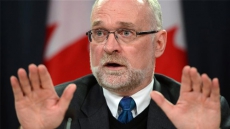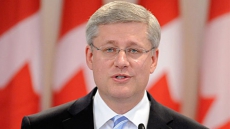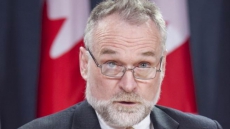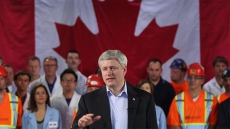VICTORIA — British Columbia's ambition of opening new mines in the province's north has raised fears in neighbouring Alaska where environmental and aboriginal groups say the industry's unchecked development threatens their salmon and tourism industries.
Tribal leaders and salmon-protection advocates gathered at a Bureau of Indian Affairs conference in Anchorage Tuesday, and high on the agenda was the impact of B.C. mineral developments on the multibillion-dollar Alaskan industries.
Conference delegates called on the U.S. State Department to use the 1909 Boundary Waters Treaty to activate the International Joint Commission, hold boundary dispute hearings and discuss the important salmon waterways, the communities they support and the risks they face from potential mine contamination.
"We're asking the U.S. federal government to elevate this issue to the International Joint Commission," said Guy Archibald, a spokesman for the southeast Alaska Conservation Council.
Archibald said conservation and aboriginal groups have formed the Salmon Beyond Borders coalition to lobby their government to pressure Canada and B.C.
He said both Canada and the U.S. must formally request the International Joint Commission hearings.
"We see this region for its salmon and cultural benefits, and it seems like northwest B.C., in the same region, looks more towards mineral development as being the best use of the land, so we see there's kind of a conflict going on here," said Archibald in an interview just prior to his convention address.
The Alaskans say rapid, industrial mine developments in B.C. threaten the headwaters of some of southeast Alaska's prime salmon rivers, including the Taku, Stikine and Unuk rivers, which flow through Canada's most-western province.
The Alaskans say the rivers are some of the most productive salmon rivers on the entire North American west coast, and have ecological, cultural and recreational uses and values.
Archibald said the Alaskans are deeply concerned about what they consider loose mining regulations in B.C., especially since last summer's tailings pond breach at the Mount Polley mine near Williams Lake, in B.C.'s central Interior.
Millions of litres of mine water and waste gushed over the landscape near Likely, B.C., last August and shut down operations at the Imperial Metals open pit, copper and gold mine.
Archibald said a visit to Alaska last month by B.C.'s Energy and Mines Minister Bill Bennett did not alleviate concerns about potential, future disasters in B.C.'s northwest.
"He was trying to tamp down some of the bad press over the Mount Polley tailings disaster," said Archibald.
"He basically equated what happened at Imperial Metals Mount Polley mine to a large avalanche. That's the kind of rhetoric that really worries people in southeast Alaska."
Bennett was not immediately available for comment.
Bennett travelled to Alaska, spoke to the annual Alaska Miners Association convention in Anchorage and met with state officials and fishing organizations.
Bennett said he was accompanied by Chad Day, president of the Tahltan Central Council, along with senior government environment and energy officials.
The Tahltan of northwest B.C. have explored mining developments with the province.
Bennett said he also met with Alaska Sen. Lisa Murkowski, a Republican who has expressed concerns about B.C.'s mining industry.






